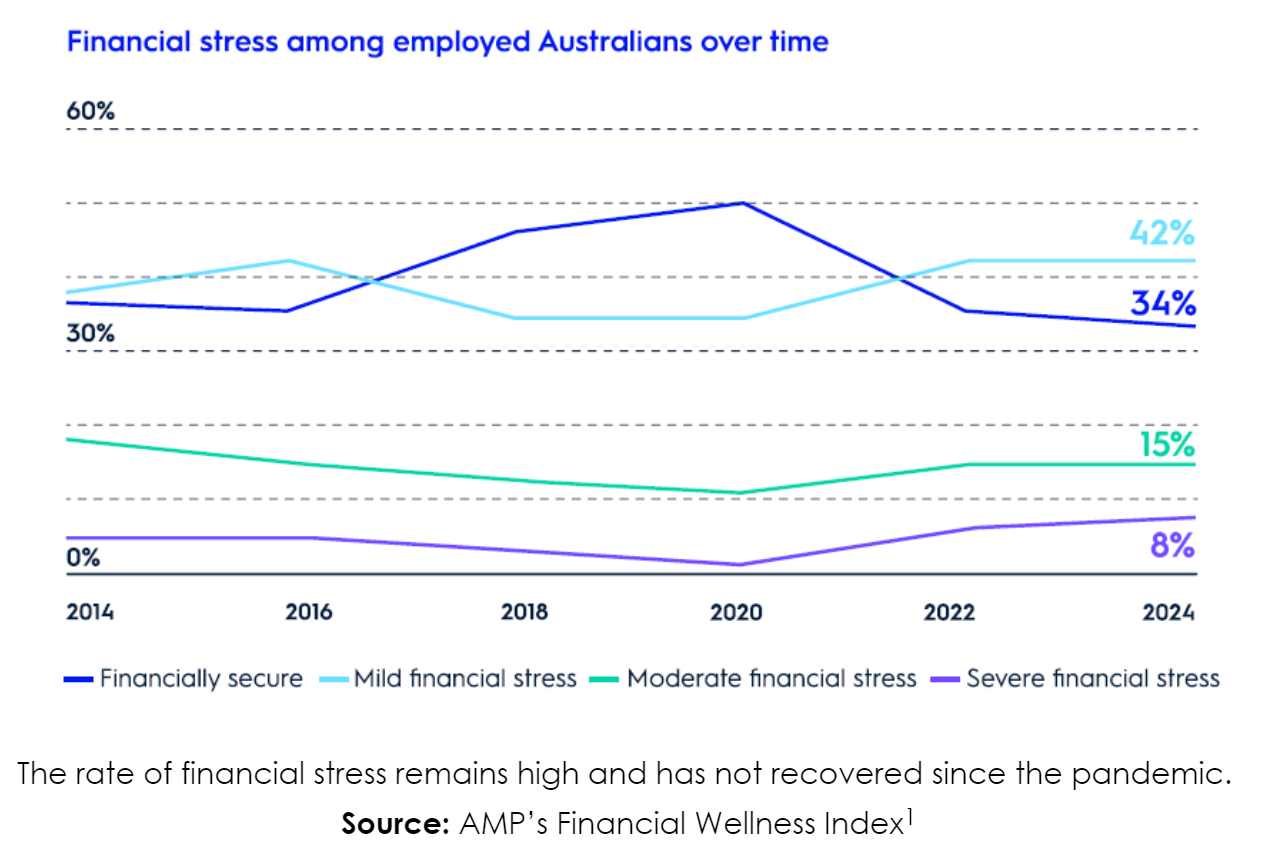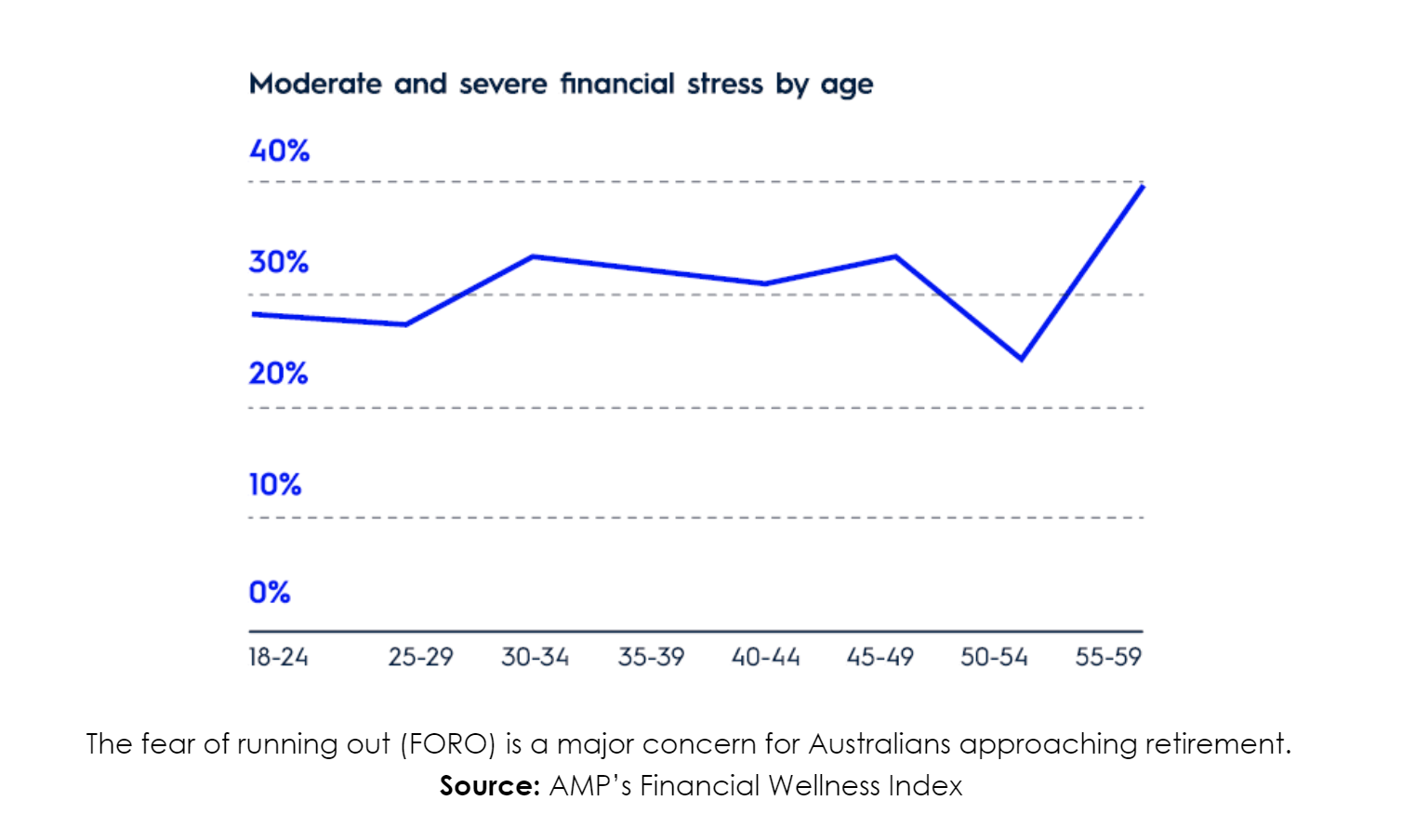Rising costs of living and housing affordability challenges are major factors

Financial stress levels in Australia have reached their highest point in a decade, according to AMP’s latest Financial Wellness report.
The biennial research, now in its 10th year, highlights the growing financial challenges faced by Australians aged 18 and over, as well as the broader economic and mental health impacts of financial strain.
The report reveals that only one in three working Australians feel financially secure, a significant drop from half of respondents in 2020. Rising costs of living and housing affordability challenges have contributed to this decline.
Financial stress is also having a hidden impact on Australians’ mental wellbeing. Many are reluctant to seek professional advice on financial matters, with nearly one in three turning to friends or family members for guidance. Only one in nine consulted their superannuation fund, and just one in 20 sought help from a financial adviser.
The AMP Group report found that one in three Australians do not use any external information sources — such as podcasts, social media, or online searches — to inform important financial decisions, even when those resources are easily accessible.
Short-term financial pressures are also affecting long-term planning. One in three respondents said they rarely or never plan for their financial futures, focusing instead on immediate expenses.
Australians approaching retirement are experiencing the highest levels of financial stress, according to AMP’s Financial Wellness report. After a brief period of relief between the ages of 51 and 54, stress levels rise sharply, with nearly two in five individuals nearing retirement reporting moderate to severe stress.
Sean O’Malley (pictured above), group executive at AMP Bank, noted the increasing insecurity around personal finances, citing the cost of living and housing affordability as major factors.
“While most Australians are meeting their mortgage repayments, savings rates are down, and many are cutting back on household basics like groceries and discretionary items like streaming services and holidays,” O’Malley said.
He encouraged Australians to explore available support options, including consulting with banks or mortgage brokers for better loan rates.
“With a focus on paying bills, more Australians are understandably thinking less about their long-term financial goals,” said Melinda Howes, group executive for super and investments at AMP.
Howes emphasised the benefits of Australia’s compulsory superannuation system, urging Australians to optimise their retirement savings through tools like AMP’s Retirement Health Check and other advisory services.
Any thoughts on this story? Share them with us by leaving a comment in the discussion box at the bottom of the page.





